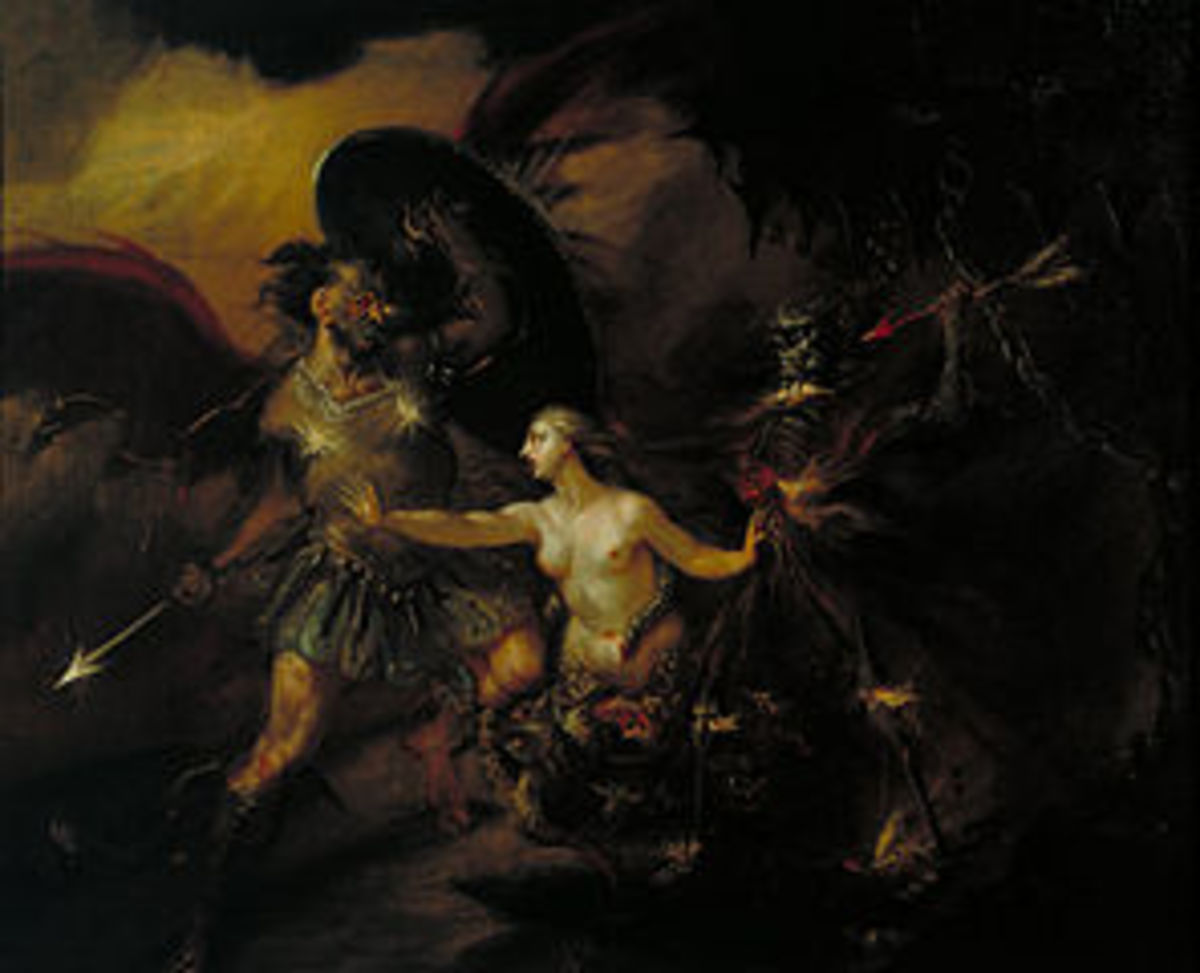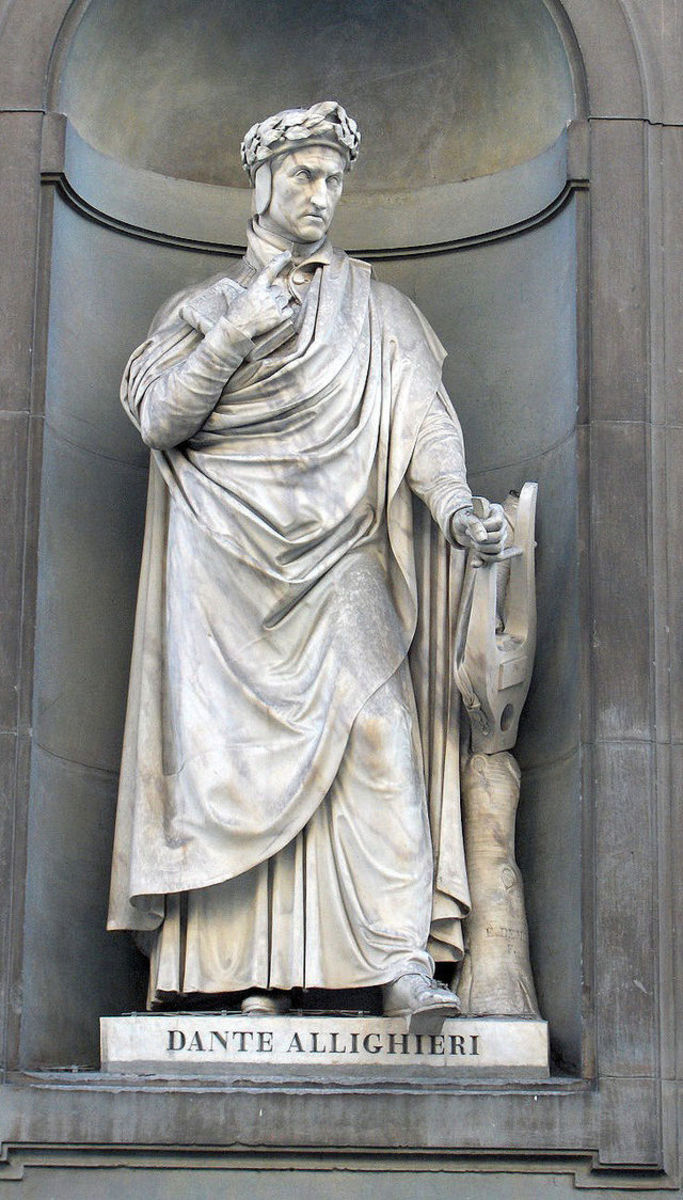Can't Hardly Wait: Suspense in Milton's Paradise Lost
Escorted Out of Eden

Over and over and over again...
Why does a person read a story or watch a movie over and over again? Even if he hasn’t read the literary work or watched the movie, yet is familiar with the content, why does he go forward anyway? The argument isn’t that he doesn’t know the outcome, but instead it’s the innate and unconscious desire to experience the suspense once more. Often, in addition to the thrill of suspense a person will make new observations to how the story is being told…nuances that alter an opinion of a character or innuendos in dialogue. This will continue to add to the suspense of the story itself. The greatest story ever told has survived ages of interpretation, character analysis and suspenseful re-telling, one example being John Milton’s Paradise Lost. In this epic poem, Milton tells the tale of the fall of mankind beginning with the fall of Satan himself and ending with the removal of Adam and Eve from Eden. This article will analyze a passage from Book IX of Milton’s work to interpret his use of suspense in the overall poetic style.
Seduction through Rationalization
Book IX of Paradise Lost chronicles the seduction of Eve by Satan disguised as a serpent to commit the original sin and her convincing Adam to join her. The overall style of the poem presents to the reader as almost dramatic with continuous dialogue between characters, narration by an omniscient third party and all the elements of tragedy. Bloom’s Classic Critical Views even states, “The composition of Paradise Lost is noteworthy in itself, for this epic actually began as a drama; manuscripts from 1640–42 show four drafts of the work as a morality play and a five-act tragedy in its first conceptions” (par. 2). One essential element to any dramatic work in order to engage the audience is the use of suspense and Milton successfully integrates this element in Book IX of his poem during the interchange between Satan and Eve. Upon Eve’s statement that God commanded them to abstain from eating of the Tree of Knowledge Milton writes, “To whom the tempter guilefully replied. / Indeed? Hath God then said that of the fruit / Of all these garden trees ye shall not eat, / Yet lords declared of all in earth or air?” (lines 655-658). The reader may very well know that Eve eats of the forbidden fruit but the method in which she is tempted is uniquely Milton’s in that his ability to draw the reader into their conversation successfully builds the desire to keep reading as to how Satan tempts Eve, not just that he actually succeeds in doing so. The reader begins to see the distinctly human characteristics exploited in Eve as well as the transition from hero to villain of Satan through the covert tactics employed by Milton amid the dialogue he creates between these characters. The scheme that Milton employs in his prose is such that the reader is led to believe that Satan didn’t tempt Eve but instead convinced her through rationalization that she is entitled.
The Temptation

She Plucked, She Ate
The question then remains, what happens next? Milton leaves himself the task of describing the outcome to Eve’s transgression. Although the general idea of the outcome is understood, it is a matter of Milton’s literary capability to put that into suspenseful poetic form. Literary critic Edmond Scherer states, “Milton wants to prove something, he is sustaining a thesis, he means to do the work of a theologian as well as of a poet” (par. 13). And the reader can understand this to be very true in that Milton’s remaining daunting task is to interpret the final moments in the Garden of Eden while successfully doing so in a highly regarded poetic format. Upon Eve’s eating of the forbidden fruit, the reader awaits how God, Adam and paradise itself responds. He writes, “Forth reaching to the fruit, she plucked, she ate: / Earth felt the wound, and nature from her seat / Sighing through all her works gave signs of woe, / That all was lost…” (781-784). It is apparent to the reader that Eve did not experience death in the literal form of the word as indicated by God, which alludes to that many more questions of the reader as to how Milton proceeds with his telling of the story. So often this Biblical story is told dryly and with limited perspective. In contrast to this commonplace occurrence, Milton has stepped outside of the literary box by adding humanistic qualities to non-human characters and creating imagery that the reader can find himself in, essentially adding the element of suspense unintentionally.
Another Perspective?
Milton’s initial desire may not have been to create a suspenseful and dramatic poem with his version of a great religious story but he did justifiably do so merely with his ability to intertwine vital thematic elements to engage an audience, as well as the beautiful prose an epic poem demands. It takes a rare artist who can satisfy the demands of a multitude of elements such as these and time has continued to tell how successful he remains at doing so. Literature has never failed to create numerous of versions of the same story to include those of the Bible. What Milton has done with Paradise Lost is given the reader another perspective. And isn’t that one of the accomplishments that literature sets out to do?
John Milton: Poet









